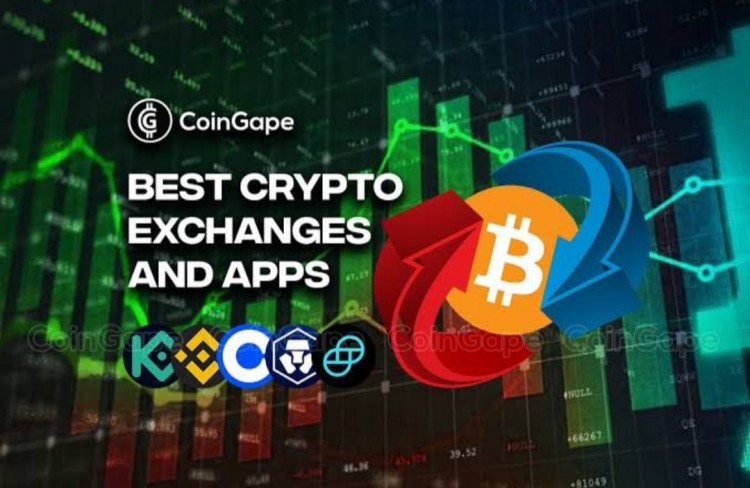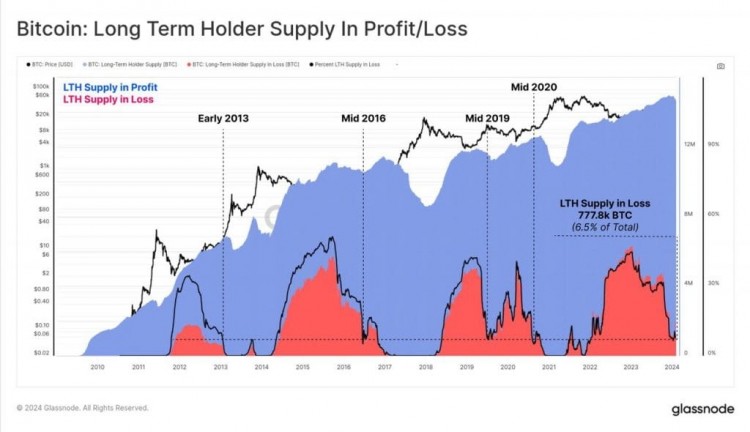时间:2024-02-18|浏览:347
最近在美国推出的 Newborn Nine 现货比特币 ETF 自推出以来的 9 个交易日内,其管理的总资产激增至 51 亿美元。
然而,在此期间,比特币的价格下跌了约 20%。
这些 ETF 的股价也与比特币价格一致下跌。
那么,如果 ETF 股票价值下跌,它们如何继续购买更多比特币呢?
商品股 ETF 旨在代表标的资产的敞口。
就现货比特币 ETF 而言,标的资产当然是比特币。
当资金流入该基金时,它被用来以等价购买比特币。
随着需求的增加,ETF 份额的价值也会增加。
相对于基础比特币价值的股票价值被称为“资产净值”(NAV),这被用作评估该基金相对于其持有的比特币是否被高估或低估的晴雨表。
创建 ETF 股票篮子。
ETF 中的新股并不是在投资者决定买入时凭空创建的。相反,它们是由授权参与者 (AP) 在篮子中创建的。
例如,贝莱德目前保留荷兰银行清算公司 (ABN AMRO Clearing)、简街资本 (Jane Street Capital)、摩根大通证券 (JP Morgan Securities)、麦格理资本 (Macquarie Capital) 和 Virtu Americas 作为 iShares 比特币信托基金的 AP。
对于贝莱德来说,这五家公司是唯一能够创建或赎回与 ETF 相关的一篮子股票的实体。
一篮子股票由 40,000 股组成,截至发稿时每股价值约为 906,365 美元。
每个篮子相当于约 22.7 BTC,这意味着每当为 ETF 创建股票时,必须至少购买 22.7 BTC(1 篮子)。
当股票被赎回时,至少等量的股票会被出售以换取现金给受影响人。
在目前的机制下,只能使用现金来创建股票篮子,这意味着 AP 不能向贝莱德提供比特币来换取股票。
To meet liquidity needs, APs will often buy baskets of shares ahead of time to sell to the market. This process happens once per trading day and uses the CF Benchmarks Index rate for Bitcoin (New York variant) to ensure shares are issued relative to the price of Bitcoin. When the trading activity for an ETF is high, it means there’s a high demand for shares, and thus, there needs to be sufficient liquidity to handle the volume. Baskets of shares will be created in line with the volume, and these new shares will be used to report inflows into the ETFs.
For instance, if 7 million new shares are created, bringing the total outstanding shares to 70 million, and the NAV price for the ETF is $22, the AUM increases by $154 million to $1.54 billion. However, these shares have not necessarily been sold into the open market and in the hands of investors. The newly created shares may still be held by the APs, ready to be used as liquidity for the trading activity ahead.
If Bitcoin’s price declines, which leads to investors selling shares in the ETF, the assets under management do not necessarily decline at the same rate. While the AUM may reduce in dollar terms if Bitcoin becomes less valuable, the number of BTC held in the fund remains unchanged until the AP redeems shares.
A reduction in ETF share price while its AUM increases due to additional Bitcoin purchases, therefore, could signal that the APs believe the underlying asset is undervalued. APs can hold onto outstanding shares without redeeming them if they believe Bitcoin will be worth more in the future. Each share is priced relative to the AUM when valued in dollar terms. Therefore, by not redeeming the shares if Bitcoin rallies in the future, the AUM will also increase, making each share more valuable.
Therefore, given that both the Newborn Nine and the underlying Bitcoin have declined around 18% since launch. At the same time, the combined assets under management have grown by approximately $550 million per day, and it seems the APs are not redeeming shares.
The only ETF seeing outflows in terms of redemptions is Grayscale, with its imposing 1.5% fee and majority of investors in profit. All other ETFs, namely the Newborn Nine, are experiencing daily inflows via new share basket creations from APs.
There is around $1.5 billion in trading volume across the spot Bitcoin ETFs, which requires considerable liquidity to facilitate. Should this liquidity fall off, we may see some redemption activity.
Until then, the combined value of cash used by US institutions to facilitate share creation for Bitcoin ETFs is over $27 billion. Given that the price has declined while new share baskets have been created, it is reasonable to assume that some of this Bitcoin is essentially owned by APs such as JP Morgan and Jane Street Capital, among others.
Now for the slightly ‘tin foil hat,’ full Bitcoin maxi part of the argument. If JP Morgan as a company were as bearish on Bitcoin as CEO Jamie Dimon, one might expect baskets to be redeemed as long as enough shares exist in the market to handle liquidity. Yet, from current data, it seems no share baskets have been redeemed for the Newborn Nine. Any shares that may currently be unallocated to investors belong to the APs who created the baskets.
For BlackRock’s iShares Bitcoin ETF (IBIT), 11.9 million shares changed hands on Jan. 24, with 77.2 million shares outstanding. This calculates to around a 15% liquidity rate.
In comparison, BlackRock’s iShares Core S&P 500 ETF (IVV) has 854 million shares and an average volume of around 5.5 million, indicating a volume of 0.6% of the float. For IBIT, this equated to roughly $270 million in volume, while IVV saw around ten times more at $2.7 billion. Thus, IVV has 10 times the volume, but IBIT has 25 times the liquidity.
The high liquidity for Bitcoin ETFs indicates strong, albeit potentially more speculative, interest in the financial products. IVV’s lower trading ratio indicates its stable position in the market, with far less speculative trading. However, the Bitcoin ETF may also be less sensitive to large trades, given the deep liquidity available.
By all accounts, the debut of spot Bitcoin on Wall Street has been an enormous success. The interest from investors is evident through the volume, and the institutional interest and belief can be seen clearly in the strong basket creation across the board.
I’d even hazard to guess that if volumes decline, we will continue to see daily inflows into the Newborn Nine ETFs as long as Grayscale continues its outflows. Given how the Bitcoin price is calculated for ETFs, buying Bitcoin from Grayscale is an excellent method of averaging dollar cost into Bitcoin. This is especially true when, on paper, APs are giving cash to the world’s leading asset managers like BlackRock and Fidelity rather than custodying Bitcoin themselves. Further, there is no public exposure to this method of Bitcoin accumulation, meaning that the reputational risk is low.
Unfortunately, unlike blockchain, TradFi is a closed book. There is no way to know how many outstanding shares are held with APs and how many are in investors’ hands. Future disclosures and reports may give snapshots of the situation, yet we are left mainly in the dark until TradFi adopts a more transparent blockchain-based infrastructure.
The answer is maybe. To address whether institutions such as JP Morgan and other APs could be using ETFs like BlackRock’s as a proxy to buy Bitcoin, I’ll end with this line from BlackRock’s prospectus;
授权参与者没有义务创建或赎回篮子,授权参与者也没有义务向
公众发售其创建的任何篮子的股份。
“
当然,这是此类文档的标准语言,但它确实让您感到好奇。
这种灵活性可能非常重要。
这意味着这些机构可以自由地以符合其投资策略的方式管理其对 ETF 的参与,包括他们希望如何接触比特币。
因此,如果一家机构认为比特币的价值会增加,它可能会创建篮子来获得更多股票(从而增加对比特币的敞口),而不必将这些股票出售给公众。
另一方面,如果他们不太乐观或想减少风险敞口,他们可能会选择不创建篮子。
这种策略可能是机构间接投资比特币的一种方式,使用 ETF 作为管理投资的工具,而无需直接买卖比特币本身。
更新:澄清了 iShares Core S&P 500 股票代码。
![[伯特]为什么贝莱德比特币持有量随着价格下跌而增加](/img/btc/3.jpeg)








